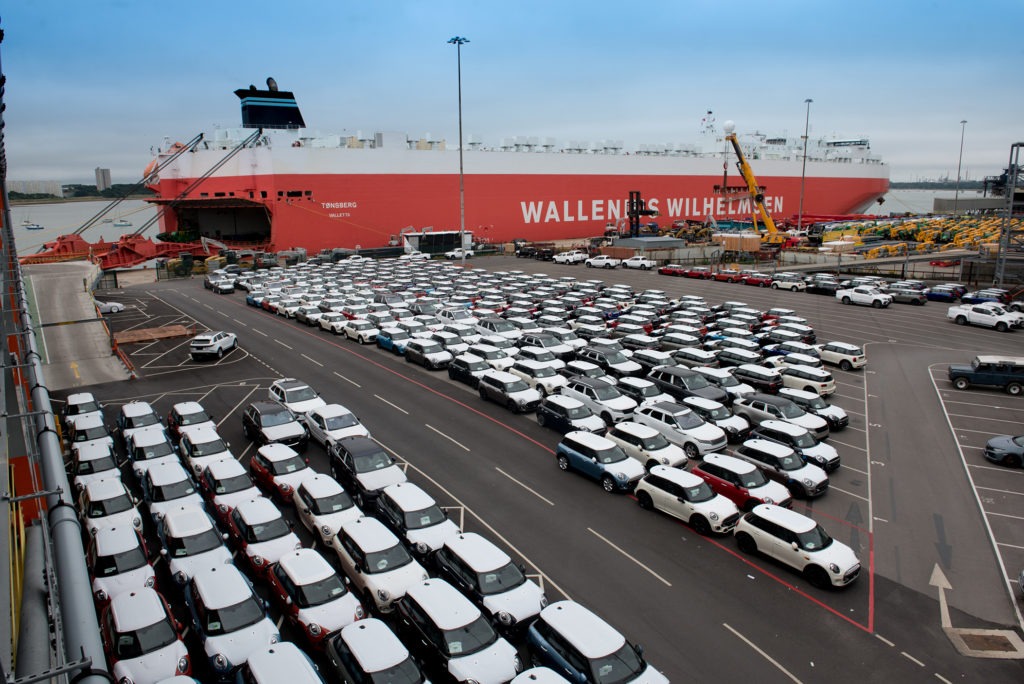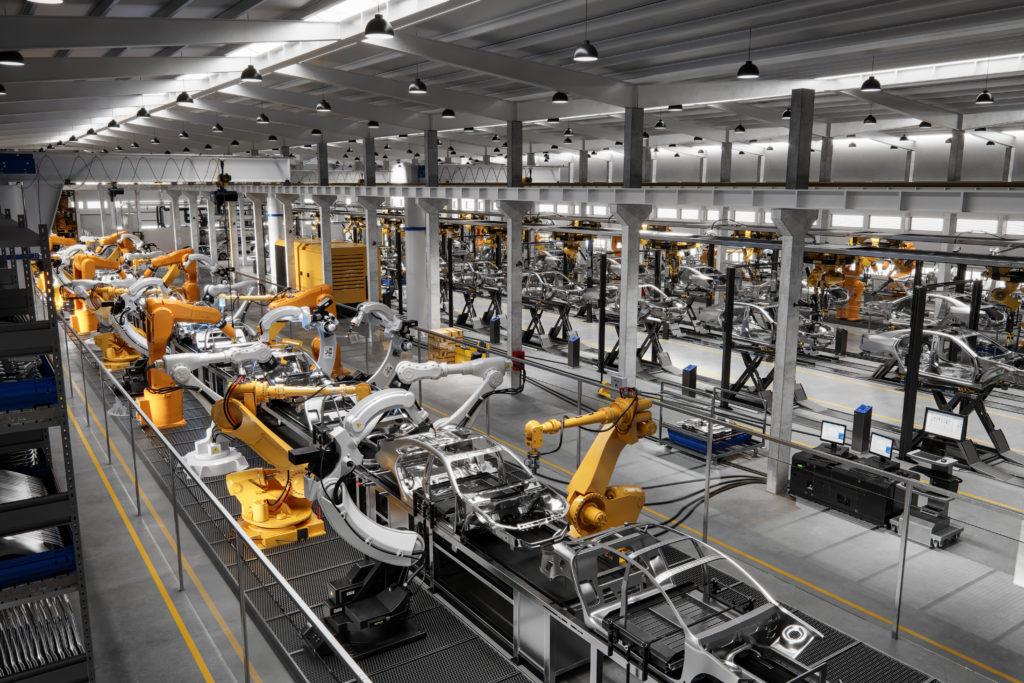Carmakers discuss UK electrification with prime minister
20 October 2021

Automotive industry leaders from the UK and abroad met with Prime Minister Boris Johnson to discuss electrification. The roundtable event came as the UK government confirmed its net zero strategy, which sets aside funds to support the sector through this period of transition.
Industry representatives appeared welcoming of additional investment, which should help ensure the affordability and therefore accessibility of electrically-chargeable vehicles (EVs). However, they also pointed to the need for a similar regulatory approach when it comes to infrastructure, which remains a formidable barrier to the wider adoption of electromobility.
The likes of Nissan, Stellantis, BMW, Ford, Toyota, Arrival, Jaguar Land Rover (JLR), InstaVolt, Pod Point, BP, Bosch, Envision, BYD, and Geely, all sat down with Johnson and numerous government representatives. Together, they discussed how to accelerate the electric transformation while supporting the industry and building public confidence in charging infrastructure. Also addressed was the need to create high-quality jobs and reskill the automotive workforce.
Working with the government in this way will be essential for carmakers. They are working to meet the UK’s 2030 deadline, when the sale of new internal-combustion engine (ICE) vehicles will end. By 2035, new vehicles must have no tailpipe emissions at all, also ruling out hybrids.
Zero-emission UK
As the heads of industry and government discussed the sector’s future, the country’s net zero strategy was revealed. It commits an extra £350 million (€414 million) towards electrification of UK vehicles and their supply chains as part of the larger Automotive Transformation Fund (ATF), which is worth up to £1 billion.
A further £620 million was also added to the funding pot for zero-emission vehicle grants and EV infrastructure. This includes investment in the charging network, with a focus on local, on-street, residential points.
The industry angle
Commenting on the roundtable, Mike Hawes, chief executive of the Society of Motor Manufacturers and Traders (SMMT), identified a promising outlook for the UK’s automotive industry. He pointed to the rapid pace at which zero-emission vehicles are hitting the country’s roads, thanks to a wide variety of new models. This pace could be maintained or even increased with a well-designed, flexible regulatory framework, Hawes claimed.
‘Consumers need choice and encouragement, irrespective of where they live or what they drive. The additional targeted funding for electric vehicles is welcome and will help ensure affordability for certain models. To ensure we have the reliable, accessible, and nationwide charge-point network this transition needs, however, requires a similar regulatory approach,’ the SMMT’s chief executive said.
‘The announcement of additional funds for on-street residential charging must energise much-needed private-sector investment but consumers will only have confidence in the future if there are commensurate and binding requirements on the infrastructure sector. Combining regulatory commitments with financial ones is the key to a successful transition to zero-emission road transport,’ Hawes added.
UK manufacturing
Recently, the SMMT also published a joint report with four other UK manufacturing organisations, including pharmaceuticals, chemicals, food and drink, as well as aerospace, defence and security. In it, the bodies recommended how the government could work with them to seize new economic opportunities, sustain jobs and deliver growth post-pandemic.
‘Manufacturing matters to the UK economy. It supports thousands of highly-skilled, well-paid jobs right across the country, with sectors such as automotive contributing some £12 billion to the UK economy and exporting products around the world,’ Hawes said.
‘As the sector transitions to the production of increasingly connected and electrified vehicles, it can play a crucial role driving Britain’s productivity, creating additional jobs and delivering economic growth in areas that demand investment,’ he concluded.
The recommendations covered numerous industrial bases. These include developing infrastructure and skills across the country, expanding incentives to attract R&D investment, creating coherent regulations, and putting manufacturing at the forefront of a long-term export strategy.
One of the major points highlighted was the need to achieve net-zero by enhancing the industrial-energy transformation fund. It explained that complex manufacturing is energy-intensive, which is a major issue as the manufacturing representatives claimed electricity costs in the UK are 80% above EU competitors. Therefore, there is a need to capitalise on low-carbon opportunities, such as wind-turbines, hydrogen and batteries.



